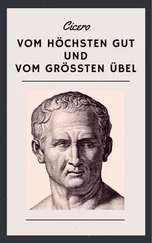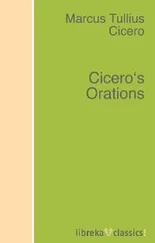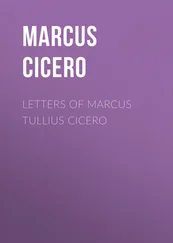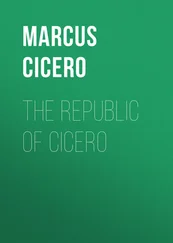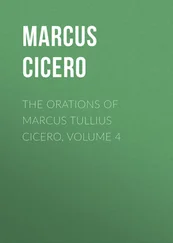Marcus Cicero - The Letters of Cicero, Volume 1
Здесь есть возможность читать онлайн «Marcus Cicero - The Letters of Cicero, Volume 1» — ознакомительный отрывок электронной книги совершенно бесплатно, а после прочтения отрывка купить полную версию. В некоторых случаях можно слушать аудио, скачать через торрент в формате fb2 и присутствует краткое содержание. Жанр: foreign_antique, Философия, foreign_edu, на английском языке. Описание произведения, (предисловие) а так же отзывы посетителей доступны на портале библиотеки ЛибКат.
- Название:The Letters of Cicero, Volume 1
- Автор:
- Жанр:
- Год:неизвестен
- ISBN:нет данных
- Рейтинг книги:4 / 5. Голосов: 1
-
Избранное:Добавить в избранное
- Отзывы:
-
Ваша оценка:
- 80
- 1
- 2
- 3
- 4
- 5
The Letters of Cicero, Volume 1: краткое содержание, описание и аннотация
Предлагаем к чтению аннотацию, описание, краткое содержание или предисловие (зависит от того, что написал сам автор книги «The Letters of Cicero, Volume 1»). Если вы не нашли необходимую информацию о книге — напишите в комментариях, мы постараемся отыскать её.
The Letters of Cicero, Volume 1 — читать онлайн ознакомительный отрывок
Ниже представлен текст книги, разбитый по страницам. Система сохранения места последней прочитанной страницы, позволяет с удобством читать онлайн бесплатно книгу «The Letters of Cicero, Volume 1», без необходимости каждый раз заново искать на чём Вы остановились. Поставьте закладку, и сможете в любой момент перейти на страницу, на которой закончили чтение.
Интервал:
Закладка:
1 1 That Cicero up to the time of his consulship had been connected rather with the populares is illustrated by Quintus ( de Petit. i.) urging him to make it clear that he had never been a demagogue, but that if he had ever spoken "in the spirit of the popular party, he had done so with the view of attracting Pompey."and an Optimate, and even then his feelings were much distracted by a strong belief—strangely ill-founded—that Pompey would be as successful as a statesman as he had been fortunate as a general. For him he had also a warm personal attachment, which never seems to have wholly died out, in spite of much petulance of language. This partly accounts for the surrender of b.c. 56, and his acquiescence in the policy of the triumvirs, an acquiescence never hearty indeed, as far as Cæsar and Crassus were concerned, but in which he consoled himself with the belief that nothing very unconstitutional could be done while Pompey was practically directing affairs at Rome.
The various nature of the Correspondence.
It is through this period of political change and excitement that the correspondence will take us, with some important gaps indeed, but on the whole fullest when it is most wanted to shew the feelings and motives guiding the active politicians of the day, or at any rate the effect which events had upon one eager and acute intellect and sensitive heart. One charm of the correspondence is variety. There is almost every sort of letter. Those to Atticus are unstudied, spontaneous, and reflect the varying moods of the writer. At times of special excitement they follow each other day by day, and sometimes more than once in the same day; and the writer seems to conceal nothing, however much it might expose him to ridicule, and to the charge of fickleness, weakness, or even cowardice. Those addressed to other friends are sometimes familiar and playful, sometimes angry and indignant. Some of them are careful and elaborate state papers, others mere formal introductions and recommendations. Business, literature, and philosophy all have their share in them; and, what is so rare in ancient literature, the family relations of the writer, his dealings with wife, son, and daughter, brother and nephew, and sons-in-law, are all depicted for us, often with the utmost frankness. After reading them we seem to know Cicero the man, as well as Cicero the statesman and orator. The eleven letters which precede the consulship are happily, from this point of view, addressed to Atticus. For it was to Atticus that he wrote with the least concealment, and with the confidence that any detail, however small, which concerned himself would be interesting to his correspondent. It is well, therefore, that, though we thus come into his life when it was more than half over, we should at once hear his genuine sentiments on whatever subjects he may be speaking. Besides his own, we have about ninety letters to Cicero from some of the chief men of the day—Pompey, Cæsar, Cato, Brutus, Antony, and many others. They are of very various excellence. The best of them are by much less known men. Neither Pompey nor Cæsar were good letter-writers, or, if the latter was so, he was too busy to use his powers.
Cicero's position previous to the beginning of the Correspondence in b.c. 68.
The letters begin, then, in b.c. 68, when Cicero was in his thirty-seventh year. He was already a man of established reputation both as a pleader and a writer. Rhetorical treatises (b.c. 86), translations from Xenophon and Plato (b.c. 84), and from the poems of Aratus (b.c. 81), had given evidence of a varied literary interest and a promise of future eminence, while his success as an advocate had led to the first step in the official cursus honorum by his becoming a quæstor in b.c. 75. The lot assigned Lilybæum as his sphere of work, and though the duties of a quæstor in Sicily were not such as to bring a man's name much before the Roman public, Cicero plumes himself, as was not unusual with him, on the integrity and energy which he displayed in his administration. He has indeed the honesty to tell against himself the story of the acquaintance who, meeting him at Puteoli on his return journey, asked Quæstor, b.c. 75. him what day he had left Rome and what was the news there. When he answered rather crossly that he had just come from Sicily, another acquaintance put in with "Why, of course. Didn't you know he has just been quæstor at Syracuse !" At any rate he had done sufficiently well in Lilybæum to give him his next step, the ædileship to which he was elected b.c. 70, and to induce the Sicilians to apply to him, when in that year they desired the prosecution of the extortionate Verres. His energy and success in this business raised him, without question, to the first rank of advocates, and pledged him to a righteous policy in regard to the government of the provinces.
Cicero's Boyhood and Education.
Still Cicero was a novus homo , and the jealous exclusiveness of the great families at Rome might yet prevent his attainment of the highest office of all. When the correspondence opens he is a candidate for the prætorship, which he obtained without difficulty, at the head of the poll. But his birth might still be a bar to the consulship. His father, M. Tullius, lived at Arpinum, an ancient city of the Volscians and afterwards of the Samnites, which had long enjoyed a partial, and from b.c. 188 a complete, Roman franchise, and was included in the Cornelian tribe. Cicero's mother's name was Helvia, of whom we know nothing but the one anecdote told by Quintus ( Fam. xvi. 26), who says that she used to seal the wine jars when they were emptied, so that none might be drained without her knowing it—a testimony to her economy and careful housewifery. His father had weak health and resided almost entirely in his villa at Arpinum, which he had considerably enlarged, much devoted to study and literature ( de Leg. ii. 1). But though he apparently possessed considerable property, giving him equestrian rank, and though Cicero says that his family was very ancient, yet neither he nor any of his ancestors had held Roman magistracies. Marcus and his brother Quintus were the first of their family to do so, and both had to depend on character and ability to secure their elections. But though the father did nothing for his sons by holding curule office himself, he did the best for their education that was possible. Cicero calls him optimus et prudentissimus , and speaks with gratitude of what he had done for his sons in this respect. They were sent early to Rome to the house of C. Aculeo, a learned jurisconsult, married to a sister of Helvia; and attended—with their cousins, the sons of Aculeo—the best schools in the city. 2 2 De Orat. ii. §§ 1, 2.
The young Marcus shewed extraordinary ability from the first, and that avidity for reading and study which never forsook him. As a young man he diligently attended the chambers of renowned jurisconsults, especially those of the elder and younger Scævola, Crassus, and Antonius, and soon found that his calling in life was oratory. It was not till he was twenty-eight years old, however—when he had already written much and pleaded many cases—that he went on a visit of between two and three years to Greece, Asia, and Rhodes, to study in the various schools of rhetoric and philosophy, and to view their famous cities (b.c. 79-77). It was after his return from this tour that his age (he was now thirty-one) made the seeking of office at Rome possible. From that time his election to the several offices—quæstorship, ædileship, prætorship, consulship—followed without any repulse, each in the first year of his age at which he was legally capable of being elected.
Интервал:
Закладка:
Похожие книги на «The Letters of Cicero, Volume 1»
Представляем Вашему вниманию похожие книги на «The Letters of Cicero, Volume 1» списком для выбора. Мы отобрали схожую по названию и смыслу литературу в надежде предоставить читателям больше вариантов отыскать новые, интересные, ещё непрочитанные произведения.
Обсуждение, отзывы о книге «The Letters of Cicero, Volume 1» и просто собственные мнения читателей. Оставьте ваши комментарии, напишите, что Вы думаете о произведении, его смысле или главных героях. Укажите что конкретно понравилось, а что нет, и почему Вы так считаете.

